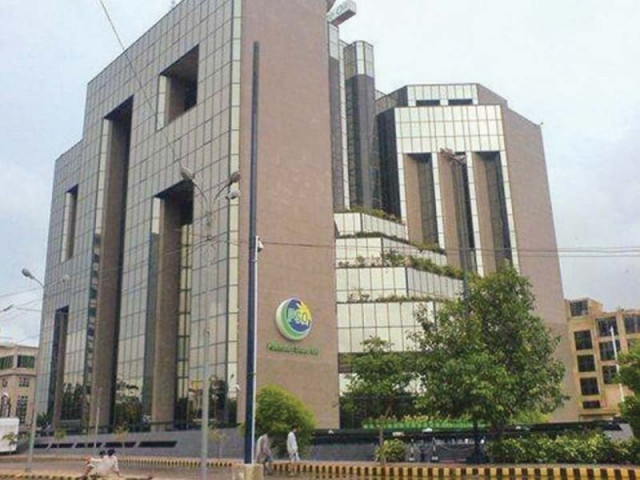The bumpier road that lies ahead for PSO
From Kirmani to Imranul Haque, OMC has undergone many changes

As PSO loses market share to competition, CEO Sheikh Imranul Haque is handicapped from taking decisions in absence of a board of directors. PHOTO: FILE
A few days after Tariq Kirmani took over as deputy managing director of Pakistan State Oil (PSO) in April 1999, Chaudhry Nisar, the then petroleum minister, asked him to prepare a presentation.
An oil industry veteran who has worked in Chevron for nearly three decades, Kirmani knew instinctively what he was going to say.
However, there was a problem — PSO did not have a laptop or multimedia resources.
Somehow, the presentation was made and Nisar supported his proposals. Later that year, the government changed but the management team was not altered significantly.
Over the next few weeks, Kirmani realised that everything behind the glass-walled headquarters of the country’s biggest company in terms of revenue was degrading.
“The 9th floor where the MD and few of his executives had offices was immaculate. But beneath that, everything else was rusted,” Kirmani told The Express Tribune.
“Typical bureaucratic-style chairs with towels on them used to lie around and there were steel cupboards with missing locks. People used ropes to lock them instead.”
Read: Corporate results: Year-long crisis hits PSO’s profits
Dire need of a revolution
Things needed an overhaul. A New Vision Programme was launched to build a brand image of the company. PSO came up with a fresh logo after 23 years. Work started to revamp retail outlets where attendants in uniforms wiped windshields and greeted customers with a smile.
But the most important area of Kirmani’s focus remained human resource management inside PSO’s head office. “One common issue among all public sector organisations is HR – it is messed up everywhere.”
Executives from different departments like finance, marketing and audit were selected to form cross-functional teams, which were delegated authority to take decisions and come up with recommendations on more serious matters.
Not everyone was happy with the sweeping changes. Kirmani’s ‘no nonsense’ attitude and his temper, which would flare up often when deadlines were missed, made him enemies.
Rumours would do rounds that ranged from accusing him of being a black magic practitioner to a megalomaniac who liked hearing poems in his praise during management committee meetings.
But for him it was time to face the biggest challenge, the one that has tested nerves of successive CEOs. Kirmani was promoted to office of managing director in 2001.
“A CEO in a public sector organisation needs to be very decisive and firm. And when he has not done anything wrong, then there is nothing to be scared of,” he said.
Headaches part of the job
Besides the usual political interference especially on matters related to appointments and promotions, a PSO CEO has to go before parliamentarians in tiresome sessions where questions are asked about miniscule expenditures.
During his tenure, which lasted until 2005, PSO added between 200 and 250 outlets to its network each year and spent billions of rupees on improving the infrastructure.
Public Procurement Rules, which were introduced in 2004, were not a problem for Kirmani, but the company still had to abide by official regulations on commercial decisions.
In retrospect, it appears that he was also lucky to have a supportive board. But it is the CEO who actually drove the board, he said.
His succession plan also worked as Jalees Siddiqi took over reins as Kirmani was appointed to head Pakistan International Airlines (PIA).
Facing unforeseen challenges
But then something happened. In the ten years from 2005, PSO has had seven permanent or acting CEOs, some of whom stayed for only a few months.
Irfan K Qureshi, another Chevron executive, was one of them. By the time he took over in early 2009, PSO’s revenue stream was dangerously tilted towards furnace oil, which had sucked the company into debilitating circular debt.
“There was talk of moving to alternative fuels. PSO was driving 50% to 51% of its revenue from furnace oil and jet fuel, which was going to Afghanistan. I feared what will happen when sales drop?”
The most logical course he saw was to increase company’s share in the lucrative lubricant business. “Shell and Caltex were driving substantial amount of revenue from this segment where PSO had a small share.”
But after little over two years in office, Qureshi was removed in 2011. And most of his time was spent in Islamabad fighting with different government departments to release PSO’s held-up receivables.
Read: Corporate results: PSO’s loss amounts to Rs1.04 billion
Four years down the road, PSO has a new CEO in Sheikh Imranul Haque, another respected name among corporate circles. He is the unluckiest of them all.
As PSO loses market share to competition, he is handicapped from taking decisions in absence of a board of directors. Even his second-in-command is suspended since February 2015.
Other marketing companies are offering discounts to their dealers on fuel and lubricants, clawing customers away from PSO every day, company officials say.
Now the fear of on-going anti-corruption investigation has added to the lethargy.
Amid these problems, there is a ray of hope in the person of Petroleum Minister Shahid Khaqan Abbasi who has stood by his decisions up till now. Let’s see when he comes to rescue of PSO.
Haque was not available for comments.
The writer is a staff correspondent
Published in The Express Tribune, September 21st, 2015.
Like Business on Facebook, follow @TribuneBiz on Twitter to stay informed and join in the conversation.



















COMMENTS
Comments are moderated and generally will be posted if they are on-topic and not abusive.
For more information, please see our Comments FAQ